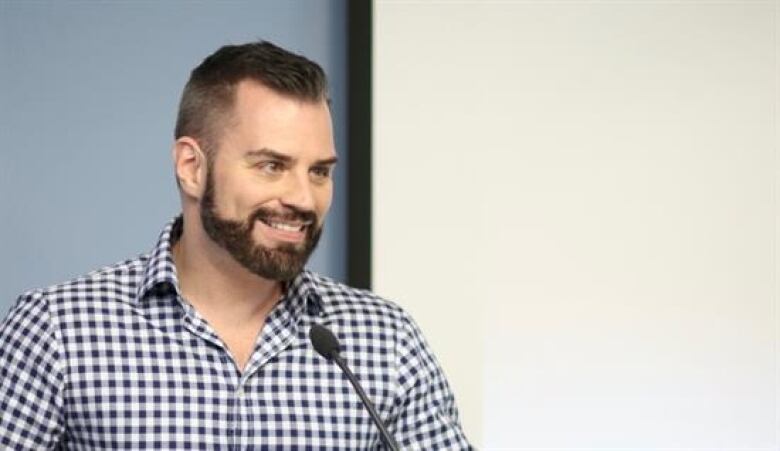Prescriptions for medication to stop the spread of HIV fall by 30% in B.C. during the pandemic
When British Columbians were told to stay home and stay safe at the beginning of the COVID-19 pandemic, Denis Laferriere did exactly that.
It also meant that his dating life was put on hold. So, Laferriere decided to stop taking his daily PrEP (pre-exposure prophylaxis) medication, which is used to prevent the spread of HIV.
“I just decided if I’m not going to be on the dating scene, I might as well not take it,” he said.
And it appears Laferriere is part of a trend in B.C.
There was a drop of 30 per cent in PrEP prescriptions between April and May and a 70 per cent drop in new initiations into the program, according to the Vancouver-based B.C. Centre for Excellence in HIV/AIDS.
At the centre, almost all PrEP treatment is used by gay, bisexual and other men who sleep with men, as well as transgender women. That’s followed by less than one percent each of heterosexual men and woman, and people who inject drugs, according to data from the last two years.
Dr. Junine Toy, senior manager for the drug treatment program at the centre, says it’s difficult to know the exact reason for the changing numbers.
“Certainly, there does seem to be … a change in the volume that aligned with the response to COVID,” she said.
Normally, Toy says the PrEP program has about 150 to 200 new members a month, a number, she says, that is now much lower.
Dr. Troy Grennan with the B.C. Centre for Disease Control and his team of doctors are tasked with supervising the members of B.C.’s PrEP program, where the medication is free for qualifying patients.

He says he’s aware there’s been a drop in prescriptions and, while there isn’t direct proof, he agrees that COVID-19 warnings to stay home and restrict physical interactions with others seems to be the cause.
“We noticed that many of our PrEP patients that we were seeing regularly were actually staying home and listening to the public health advice,” he said.
“They weren’t having a lot of contact with people.”
Some of the clinics that offer PrEP also temporarily scaled back their services during the first months of the pandemic, Grennan says. He believes that might also account for the decrease.
“People were staying home and not interested in starting PreP because they felt they weren’t going to be at risk because they were not having sex,” said Grennan.

As well, he says there are plenty of common reasons why someone might choose to end their treatment such as moving provinces or entering a long-term monogamous relationship.
As the province re-opens and people begin to feel more comfortable expanding their social circles, those numbers could soon rise.
Laferriere, who decided to stop taking PrEP at the start of the pandemic, has now started taking the medication again.
“Currently, the province is in Phase 3 and I feel much more comfortable now than I did … to get back into the dating scene,” he said.
